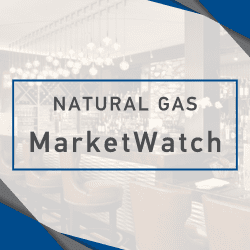Recap: Oil prices ended slightly lower on Thursday, as rising cases of the coronavirus prompted fresh lockdowns in Europe, raising concern that additional shutdowns will follow, thereby decreasing demand. The bigger than expected 3.8 million barrel decline in U.S. crude oil inventories lead to a rebound, which pushed prices off of near session lows. November WTI lost 8 cents, or 0.2%, to settle at $40.96 a barrel. It was trading at $39.75 just before the release of the EIA report. December Brent fell 16 cents or 0.4%, to $43.16 a barrel. Encouraged by an increase in implied demand, distillate inventories fell 7.2 million barrels, while gasoline supplies slipped 1.6 million barrels, as implied demand for this product slipped. November heating oil lost 0.3%, to settle at $1.187 a gallon, while November RBOB fell 1.4%, to $1.18 a gallon.
Technical Analysis: WTI fell significantly early in the session, plummeting below key support set at $40, as the U.S. dollar showed signs of strength. Prices whipsawed after the release of the EIA report, with November WTI recapturing the $40 level once again. At this point, traders appear unwilling to take a notable stand, but for the most part, have remained somewhat neutral to the developments on the coronavirus, as this market continues to trend sideways. WTI has managed to hover around the $40 level despite some cities reapplied lockdowns, while OPEC+ hints of production increases. With the 10-day moving average crossing above the 50-day moving average, we would look for a bit of a pop. A break above $41.42 will open up the opportunity for a run toward the 200-day moving average, which is currently set at $44.28. Support is set at $40 and below that at $39.
Fundamental News: The Bureau of Safety and Environmental Enforcement said a total of 23.77% or 439,823 of crude oil output in the Gulf of Mexico remains shut in as of Thursday. It also reported that a total of 12.18% or 330.04 mmcf/d of natural gas production remains shut following Hurricane Delta.
Platts is reporting that more than 1 million metric tons of ULSD are in floating storage in Europe currently.
OPEC's Secretary General, Mohammad Barkindo, said the OPEC+ alliance will ensure oil prices do not fall steeply again when it meets to set policy at the end of November, adding that demand has been recovering more slowly than expected. He stated that when OPEC+ holds its ministerial meetings on November 30th and December 1st it will take stock of the whole year to inform any decision to stay the course or amend its policy.
An OPEC+ technical committee discussed higher oil supply as production resumes in Libya amid a weaker demand outlook due to a second wave of coronavirus infections. The Joint Technical Committee met to review compliance with global oil output cuts and to review the oil market.
OPEC sources stated that OPEC+ made little progress in September in compensating for overproduction in previous months. The volume of compensatory cuts stood at 2.33 million bpd in September, down from 2.38 million bpd in August.
Illinois regulators late on Wednesday approved an expansion of the Dakota Access oil pipeline, rejected a bid by environmental groups to block the project. The Dakota Access Pipeline can transport about 570,000 bpd of crude oil from North Dakota to the Midwest, with connections to the Gulf Coast. The Illinois Commerce Commission said additional pumping stations and equipment needed for the pipeline’s capacity to be nearly doubled to 1.1 million bpd are necessary and would promote the security and convenience of the public.
Early Market Call – as of 8:20 AM EDT
WTI – Nov $40.55, down 41 cents
RBOB – Nov $1.1612, down 1.88 cents
HO – Nov $1.1738, down 1.49 cents
View the Sprague Refined Products Market Watch Report in a downloadable pdf format by clicking below.
Click to view more online:
Heating Oil Supplier
Diesel Supplier
View market updates
View our refined products glossary
Go to SpraguePORT online










